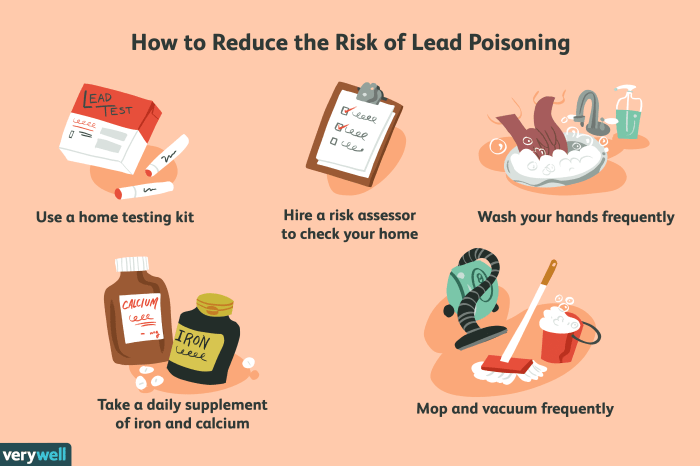Get the lead out crossword – Welcome to the intriguing world of crossword puzzles, where “get the lead out” is more than just a phrase – it’s a call to action. As we delve into the enigmatic realm of crossword solving, we’ll uncover the strategies, origins, and cultural significance of this captivating game.
Prepare to embark on a journey that will sharpen your mind, expand your vocabulary, and leave you with a newfound appreciation for the art of wordplay.
Crossword Puzzle Solving Techniques

Crossword puzzles are a great way to exercise your brain and expand your vocabulary. However, they can also be challenging, especially if you’re new to them. Here are a few tips to help you become a better crossword solver:Start with the easy clues.
This will help you get started and build confidence. As you solve more clues, you’ll start to see patterns and develop strategies for solving the more difficult ones.Look for patterns. Crosswords often use patterns to help solvers fill in the blanks.
For example, many crosswords have a theme, and the clues will all be related to that theme. Other crosswords may use wordplay or puns to create clues.Use context clues. The clues in a crossword puzzle are often connected to each other.
If you’re stuck on a clue, try reading the clues around it. They may give you the information you need to solve the clue you’re working on.Use letter frequency. Some letters are more common than others in the English language.
When you’re trying to fill in a blank, keep this in mind. The most common letters in English are E, A, R, I, O, T, N, S, L, and C.Use word structure. Words are made up of different parts, such as prefixes, suffixes, and roots.
When you’re trying to solve a clue, try to break the word down into its parts. This can help you identify the meaning of the word and fill in the blank.
If you’re stumped on a “get the lead out” crossword clue, consider the ati comfort rest and sleep brand. Their products may provide the relaxation you need to solve even the trickiest crossword puzzles.
Identifying Patterns, Get the lead out crossword
One of the most important skills in crossword puzzle solving is identifying patterns. Crosswords often use patterns to help solvers fill in the blanks. For example, many crosswords have a theme, and the clues will all be related to that theme.
Other crosswords may use wordplay or puns to create clues.Here are a few tips for identifying patterns in crosswords:*
- *Look for repeated words or phrases. If you see the same word or phrase repeated in multiple clues, it’s likely that they are related to the theme of the puzzle.
- *Look for similarities in the clues. If several clues have similar wording or structure, they may be related to each other.
- *Look for cross-references. Sometimes, one clue will refer to another clue. This can be a helpful way to identify patterns and solve the puzzle.
History and Origins of the Phrase “Get the Lead Out”
The phrase “get the lead out” is a colloquial expression that has been used for centuries to urge someone to hurry up or act with urgency. Its origins can be traced back to the early days of sailing ships, when lead was used as a weight to measure the depth of the water.
When a ship was approaching shallow water, the crew would throw a lead weight overboard to determine the depth. If the lead hit bottom quickly, it meant that the ship was in danger of running aground. In such situations, the captain would shout “Get the lead out!” to order the crew to pull up the lead weight as quickly as possible and take evasive action.
Evolution of the Phrase
Over time, the phrase “get the lead out” evolved to be used in a more general sense to mean “hurry up.” It is now commonly used in everyday speech to urge someone to do something quickly or efficiently.
The phrase has also been used in a number of idioms and expressions, such as “get the lead out of your pants” (to stop procrastinating) and “get the lead out of your shoes” (to start moving).
Common Misconceptions about “Get the Lead Out”

Despite its widespread use, there are some common misunderstandings about the meaning and usage of the phrase “get the lead out.” Let’s address these misconceptions and clarify the phrase’s intended meaning.
Distinguishing “Get the Lead Out” from “Get the Lead Out of Your Pencil”
One common misconception is that “get the lead out” is related to removing the graphite from a pencil. While the phrase “get the lead out of your pencil” does exist, it has a different meaning. It refers to the literal act of removing the graphite core from a pencil, usually to sharpen it or replace it.
In contrast, “get the lead out” is a figurative expression that means to move quickly or take action promptly. It has nothing to do with pencils or graphite.
Potential for Confusion or Misinterpretation
The similarity between the two phrases “get the lead out” and “get the lead out of your pencil” can sometimes lead to confusion or misinterpretation. In some cases, people may use “get the lead out” when they actually mean “get the lead out of your pencil,” or vice versa.
To avoid such confusion, it’s important to be aware of the different meanings of these two phrases and to use them correctly according to the intended context.
Variations and Synonyms of “Get the Lead Out”

The phrase “get the lead out” has several common variations and synonyms that convey the same sense of urgency and impatience. These variations can be used in different contexts to add emphasis or nuance to the request.
Synonyms
- Hurry up: This is a more general synonym that can be used in a wide range of situations. It simply means to move or act more quickly.
- Step on it: This phrase implies that the person needs to accelerate their pace or effort.
- Chop-chop: This informal expression is often used to convey a sense of urgency and impatience.
- Hustle: This term suggests that the person needs to work hard and efficiently to complete a task.
- Move it: This phrase is a direct command to start moving or acting more quickly.
Variations
- Get a move on: This variation emphasizes the need to start moving or taking action.
- Get cracking: This phrase suggests that the person needs to start working on a task immediately.
- Get going: This variation is similar to “get moving,” but it can also imply that the person needs to leave or depart.
- Get with it: This phrase implies that the person needs to catch up or keep up with the pace of others.
- Get your act together: This variation suggests that the person needs to improve their performance or behavior.
Cultural Impact and Usage of “Get the Lead Out”
The phrase “get the lead out” has become a ubiquitous part of our cultural lexicon, transcending its initial military origins to permeate popular culture, literature, and everyday speech. Its enduring popularity can be attributed to its versatility, adaptability, and the enduring relevance of its message: to act with urgency and efficiency.
Use in Popular Culture
In popular culture, “get the lead out” has been used in countless films, television shows, and songs. Its military origins are often referenced in war movies and action thrillers, but the phrase has also found its way into comedies, dramas, and even animated features.
For example, in the popular 1980s film “Top Gun,” the character Maverick famously tells his fellow pilots to “get the lead out” before a crucial mission.
Use in Literature
The phrase “get the lead out” has also made its way into literature, appearing in works by authors such as Mark Twain, Ernest Hemingway, and John Steinbeck. In these literary contexts, the phrase often serves to convey a sense of urgency or impatience.
For example, in Twain’s novel “The Adventures of Tom Sawyer,” the character Tom Sawyer tells his friend Huck Finn to “get the lead out” when they are running late for school.
Use in Everyday Speech
In everyday speech, “get the lead out” is commonly used to express a sense of urgency or to encourage someone to act quickly. It can be used in a variety of situations, from getting ready for work to completing a task.
For example, a parent might tell their child to “get the lead out” when it’s time to go to school, or a boss might tell an employee to “get the lead out” on a project.
Humorous or Creative Interpretations of “Get the Lead Out”: Get The Lead Out Crossword

The phrase “get the lead out” has inspired various humorous and creative interpretations. Its literal meaning of removing lead weights has led to witty puns and jokes.
In a humorous context, “get the lead out” may imply that someone is moving slowly or is taking too much time. For example, a friend might jokingly say, “Get the lead out, we’re going to be late!”
Puns and Wordplay
The phrase’s connection to lead has also sparked puns. For instance, a plumber might quip, “I’m here to get the lead out of your pipes!” Additionally, the phrase has been incorporated into wordplay, such as in the riddle: “What do you call a lazy pencil? A lead-foot!”
Artistic Interpretations
Beyond humor, “get the lead out” has found artistic expression. In photography, it may be used to describe the process of removing lead weights from a tripod to create a more dynamic image.
FAQ Section
What is the origin of the phrase “get the lead out”?
The phrase originated in the early 1900s as a nautical term, referring to the removal of heavy lead weights from the bottom of a ship to increase its speed.
What is a common misconception about “get the lead out”?
Many people mistakenly believe that “get the lead out” means to remove the graphite from a pencil. However, the phrase actually means to move quickly or to hurry up.
What are some variations of “get the lead out”?
Some common variations include “step on it,” “hurry up,” and “make haste.”